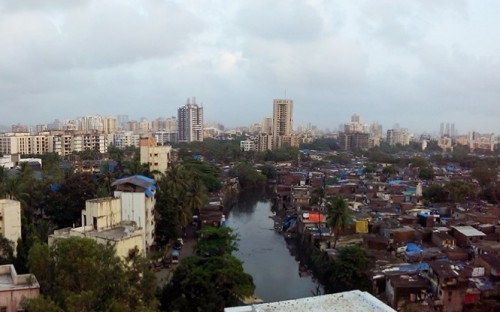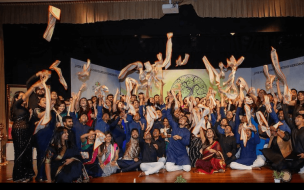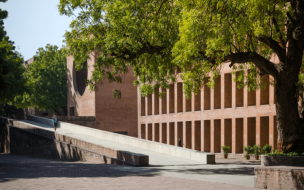Savita Doke's father goes door-to-door buying old pieces of cloth. Her mother is a scrap-picker in Kandivali, Mumbai and her eldest sister is a hospital maid. This is the daily grind of Savita's family, a family that hopes to see her become the first member to earn an MBA degree.
Between them, her parents earn less than $2 a day. They have been scrap-pickers for over 25 years. Savita's story is remarkable. The 22-year-old has had to work extremely hard in the face of adversity to pursue a business education.
Her parents couldn't support her tuition; she had to work in a pizza outlet, earning the equivalent of around $72 per month. That sounds impossibly low, but the truth is that she was earning much more than many citizens in India, and considerably more than her parents.
Last week, President Barack Obama called on Congress to raise the federal minimum wage, with a bill that would increase the current $7.25 wage to $10.10. But India has hundreds of different minimum wage policies, varying from state-to-state and sector-to-sector.
According to paycheck.in, India's National Floor Level of Minimum Wage was recently raised – to just $1.84 per day.
For most MBAs, financing MBA tuition is a key consideration. But for Savita, it’s an altogether more arduous task.
She was brought up in Khar, Northern India, with five siblings, one of whom is a widow with two children; Savita lives with her in Kandivali and helps look after the kids.
She completed a Secondary School Certificate (SSC) - the public examination taken in some states in India, similar to GCSE qualifications in the UK - and her parents granted her permission to continue studying, if she could finance it on her own.
She went on to get her Higher Secondary School Certificate, before taking a year out of education to raise funds to attend university, graduating from LN Degree College in Hyderabad with a Computer Application degree.
Her finances were running dry at that point but it didn't stop her from pursuing an MBA. Both of Savita's sisters couldn't complete their education, and while her brother recently graduated from university, Savita will be the first person in her family to complete a Masters.
"While most people go for arts, science or commerce, I decided to pursue my bachelor’s degree in Computer Application," she told mid-day.com. Yet to finance even a relatively low-cost MBA, she needs 50,000 rupees.
"I felt I should get a master’s degree that will help me get a better job. I researched and decided to pursue my MBA in marketing. I got a scholarship under SC quota, and I have to pay only half of the 50,000 fees. I somehow managed to pay 25,000 for the first year, but I still have to pay for my second year," Savita added.
At top schools in the US, MBAs can pay upwards of $60,000 per year for a business education, although this varies significantly depending on the quality and size of the institution you attend.
There are high MBA ranking schools in India, such as the Indian Institute of Management, Ahmedabad and the Indian School of Business - which are both considered among the top-50 programs world-wide. But there are also many smaller b-schools in the country which offer MBA degrees for a fraction of the price.
The reality is that, even when - or if - Savita gets her MBA, she will be earning a much smaller salary than other graduates around the world, even though not so long ago, Indian graduates could expect to leave university and walk into top jobs.
India has one of the largest youth populations in the world. But after spending thousands of dollars on business courses, many are finding that tough economic times have taken their toll on their job prospects.
In 2012, the average pay offered to students from IIM Ahmedabad - India's top-ranked school - was $25,000.
Hundreds of thousands of students take the common admission test (CAT) to get into Indian b-schools. But less than 5 per cent make it.
The Graduate Management Admission Council (GMAC) reported last year, in an employment report, that Indian citizens who graduated from full-time two-year MBA programs had a starting salary of just $34,988 - significantly lower than GMAC's US-grad estimate of $90,000. Europeans are paid even more.
Savita has just two months to pay the rest of her fees, and if she doesn't, she won't be able to take her next set of exams. But she says her institute has been "very encouraging", and is confident that she will find employment.
"They allow students to pursue internships and I have given interviews in three or four companies. However, I haven’t received any feedback as yet. I am proud of my parents and their profession, and don’t think that disclosing my family’s background will be an obstacle in getting a job," she said.
Savita's mother, Leela Doke, said she is an inspiration to her younger siblings. "With no education, my husband and I have been working as scrap-pickers for the past 25 years. We are happy that our youngest daughter has worked so hard for her education," she said.
"Taking her example, my sons have also decided to continue their higher education. I hope she is able to change her life and future.”
RECAPTHA :
02
08
36
4a








